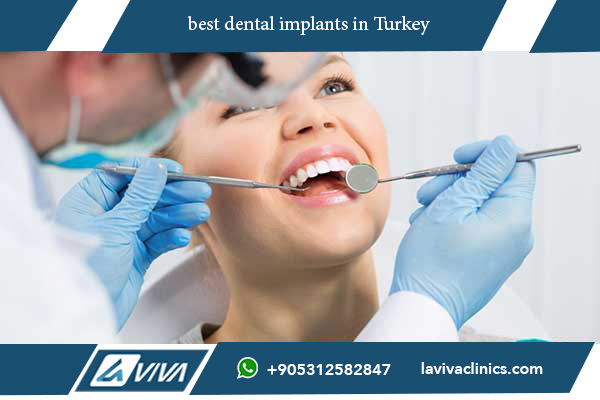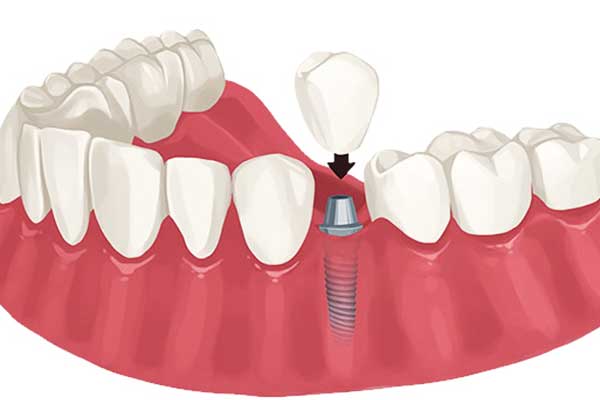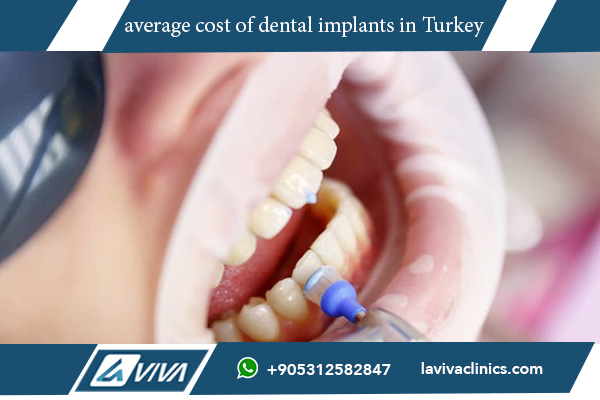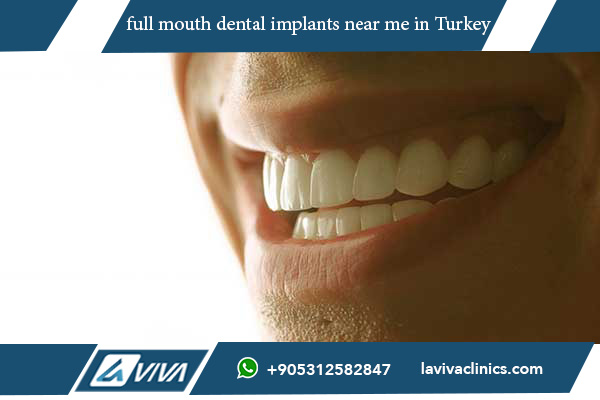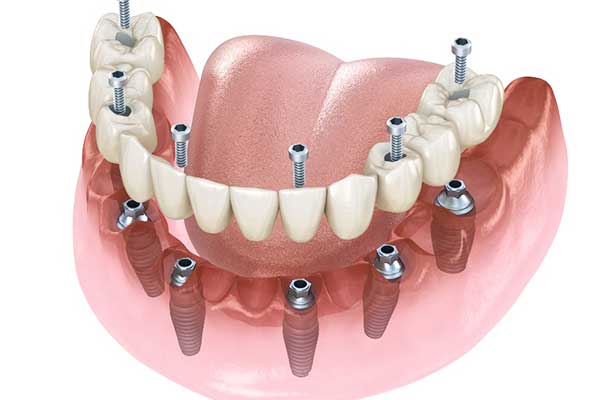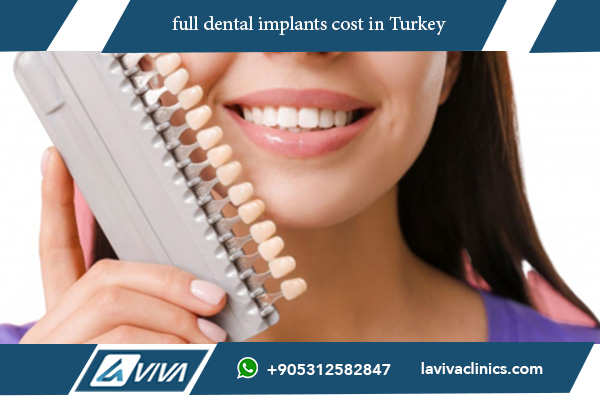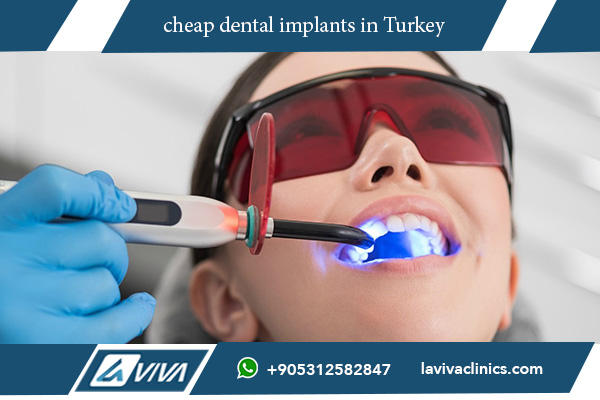Best Dental Implants: 5 Positive Reasons to Choose Laviva Clinics
best dental implants turkey
Dental implants have revolutionized the way we approach tooth replacement. They offer a durable and natural-looking solution that can last a lifetime.
In this article, we’ll dive deep into everything you need to know about best dental implants, from choosing the right clinic to understanding the procedure and healing process.
Advantages of Laviva Clinics Guide
At Laviva Clinics, we pride ourselves on being the go-to medical tourism platform in Turkey. Here’s why:
- Personalized Guidance: We connect you with the best clinics and doctors, ensuring a tailored treatment plan.
- Exclusive Packages: Our comprehensive packages include competitive prices and special offers.
For a free consultation, call +90 531 258 2847 or contact us via WhatsApp here.
Are you looking for the best dental treatment and dental service turkey?
Experience, success experiences, and turkey teeth packages…………………………………….. …..?
Let us help you get healthy, beautiful teeth
1. Introduction to Dental Implants
1.1 What are Dental Implants?
Dental implants are artificial tooth roots, typically made of titanium, that provide a permanent base for fixed, replacement teeth. Unlike dentures or bridges, implants are a long-term solution that looks, feels, and functions like natural teeth.
- Benefits of Dental Implants:
- Improved appearance and speech
- Enhanced comfort and oral health
- Increased durability and convenience
1.2 Types of Dental Implants
Endosteal Implants: The most common type, placed directly into the jawbone. They are suitable for most patients but require a good amount of healthy jawbone.
Subperiosteal Implants: Placed under the gum but above the jawbone. These are ideal for patients who do not have enough healthy jawbone for endosteal implants.
2. Choosing the Best Dental Implant Clinic
2.1 Factors to Consider
When selecting a dental implant clinic, consider the following:
- Accreditation and Certification: Ensure the clinic is accredited and the doctors are certified by relevant dental associations.
- Patient Reviews and Testimonials: Look for reviews from previous patients to gauge the quality of service and patient satisfaction.
2.2 How to Choose the Best Doctor
Choosing the right doctor is crucial for a successful dental implant procedure. Here’s what to look for:
- Qualifications and Experience: Verify the doctor’s qualifications and years of experience in dental implant procedures.
- Specializations and Expertise: Choose a doctor who specializes in dental implants and has a proven track record.
3. Preparing for Dental Implant Surgery
3.1 Pre-Surgery Consultation
Before the surgery, a thorough consultation is necessary. This includes:
- Initial Examination: A comprehensive examination to assess the condition of your teeth and jawbone.
- Treatment Planning: A personalized treatment plan outlining the steps of the procedure and expected outcomes.
3.2 Pre-Surgery Preparations
Proper preparation can ensure a smooth procedure and recovery:
- Medical History Review: Your doctor will review your medical history to identify any potential risks.
- Pre-Surgery Instructions: Follow specific instructions provided by your doctor to prepare for the surgery, such as fasting or adjusting medications.
4. Dental Implant Procedure Steps
4.1 Initial Consultation
The journey to getting dental implants begins with an initial consultation:
- Assessment and Diagnosis: Comprehensive assessment and diagnosis to ensure you are a suitable candidate for dental implants.
- Treatment Plan Discussion: Discuss the treatment plan, including the number of implants and the type of restoration.
4.2 Implant Placement Surgery
This is the main stage of the dental implant process:
- Surgical Procedure: The dental implant is surgically placed into the jawbone.
- Post-Surgery Care Instructions: Follow post-surgery care instructions to ensure proper healing.
4.3 Healing Period
Healing is crucial for the success of dental implants:
- Osseointegration Process: The implant integrates with the jawbone over several months.
- Follow-Up Visits: Regular follow-up visits to monitor the healing process.
4.4 Final Restoration
The final step involves placing the abutment and crown:
- Placement of Abutment and Crown: The abutment and crown are placed once the implant has fully integrated.
- Final Adjustments: Final adjustments to ensure the restoration fits perfectly.
5. Stages of Healing
5.1 Immediate Post-Surgery
Right after the surgery, it’s important to manage your recovery:
- Pain Management: Use prescribed medications to manage pain.
- Swelling and Bruising: Apply ice packs to reduce swelling and bruising.
5.2 Short-Term Healing
The first few weeks after surgery are critical:
- Osseointegration: The implant fuses with the jawbone.
- Temporary Restorations: Temporary restorations may be used during the healing period.
5.3 Long-Term Healing
Once the short-term healing is complete, focus on long-term care:
- Permanent Restorations: Permanent restorations are placed once healing is complete.
- Maintenance and Care: Regular maintenance and care to ensure the longevity of the implants.
6. Cost of Dental Implants
6.1 Factors Affecting Cost
Several factors can influence the cost of dental implants:
- Type of Implant: Different types of implants have varying costs.
- Complexity of Procedure: The complexity of the procedure can affect the overall cost.
6.2 Price Comparison Table
| Country | Cost of Dental Implants (USD) |
|---|---|
| Turkey | $1,000 – $2,500 |
| USA | $3,000 – $5,000 |
| UK | $2,500 – $4,000 |
| Germany | $2,000 – $3,500 |
| Australia | $3,000 – $5,000 |
7. Comparison of Techniques and Types
7.1 Traditional Dental Implants
Procedure and Benefits: Traditional implants involve multiple stages, including surgery and healing time. They offer a permanent and stable solution.
Comparison with Other Techniques: Traditional implants vs. All-on-4/All-on-6 implants.
7.2 All-on-4 and All-on-6 Implants
Procedure and Benefits: These techniques use fewer implants to support a full arch of teeth.
Comparison with Traditional Implants: Fewer implants mean shorter surgery time and quicker recovery.
8. Post-Procedure Care
8.1 Immediate Aftercare
Taking care of your implants immediately after surgery is crucial:
- Pain Management: Follow prescribed pain management protocols.
- Oral Hygiene Practices: Maintain good oral hygiene to prevent infection.
8.2 Long-Term Maintenance
Long-term care is essential for the success of dental implants:
- Regular Dental Check-Ups: Schedule regular check-ups to monitor the condition of the implants.
- Daily Care Tips: Brush and floss regularly, avoid hard foods, and use mouthwash.
For further details and a personalized consultation, please contact Laviva Clinics at +90 531 258 2847 or via WhatsApp.
This comprehensive guide ensures that all relevant topics related to best dental implants are covered in a clear and organized manner, making it easy for readers to navigate and understand.
